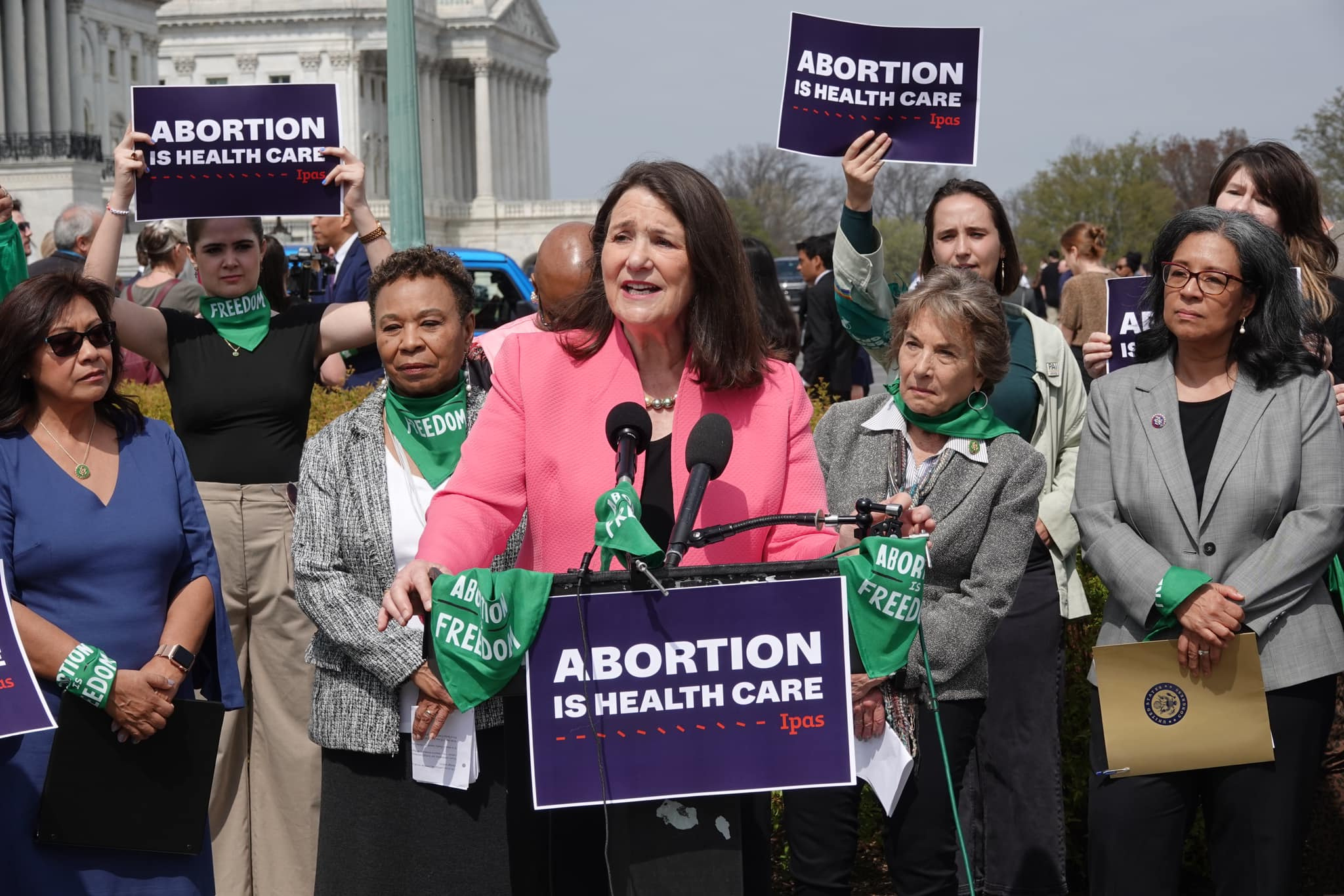
2023 Year in Review

A Letter From Congresswoman
Diana DeGette
Dear Neighbor,
2023 has been quite a year – a year of change, chaos, and even progress. We came right to the brink of an extremist government shutdown, and, for the first time in U.S. history, we witnessed a Speaker overthrown by far-right members. We saw the terrible impact of war in Ukraine and in the Israel-Hamas conflict. We saw a former president indicted – multiple times.
Despite this chaos, there has been progress as well. America’s pro-choice majority continues to make its voice heard by rejecting dangerous abortion bans. We’re seeing the impact of legislation from last Congress that House Democrats and President Biden passed. The Inflation Reduction Act continues to lower costs for Americans across the country, including prescriptions for seniors. And I joined with the entire federal delegation to keep Space Force right here in Colorado.
But there’s still more work to be done. Too many Denverites are experiencing homelessness or living under the constant threat of gun violence. I’m going to keep fighting for you and for the place we call home.
Most of all, I wish you and your loved ones all the very best throughout the New Year.


January
In January, I was excited to kick off the 118th Congress, however, conservatives got us off to a rocky start. This would become an ongoing theme in 2023.
Democrats were united and ready to get to work for the people on day one. Sadly, our Republican colleagues spent 15 rounds of voting before swearing in their first speaker, Kevin McCarthy. Needless to say, I was worried from day one about what their prolonged fight meant for our ability to get things done.
Shortly after, House Republicans put forth a package of rules that would pave the way for the immediate passage of several pieces of legislation aimed at limiting women’s right to reproductive care.
While speaking on the House floor, I told my colleagues they should join my resolution, which included a condemnation of violence against pro-choice entities, if they were serious about toning down hate-filled rhetoric. They did not take up my resolution and moved one forward with no mention of the violence abortion clinics and other pro-choice entities have been subjected to.

I was also honored to step up as the top Democrat on the House Energy and Climate Subcommittee. I believe deeply there is no greater threat to the future of our planet than the threat we face from climate change, and I am honored to have the opportunity to help lead this important panel at such a critical time.
I also led a group of 163 Representatives in reintroducing the
Equal Access to Abortion Coverage in Healthcare (EACH) Act,
to end the discriminatory Hyde Amendment and lift unjust
abortion coverage restrictions for those who depend on Medicaid
and other government-sponsored plans.
For more than 40 years, the Hyde Amendment has prevented
government-run health insurance plans, such as Medicaid –
which covers more than 83 million Americans, including
nearly 20% of all women of reproductive age – from
providing coverage for abortion services.
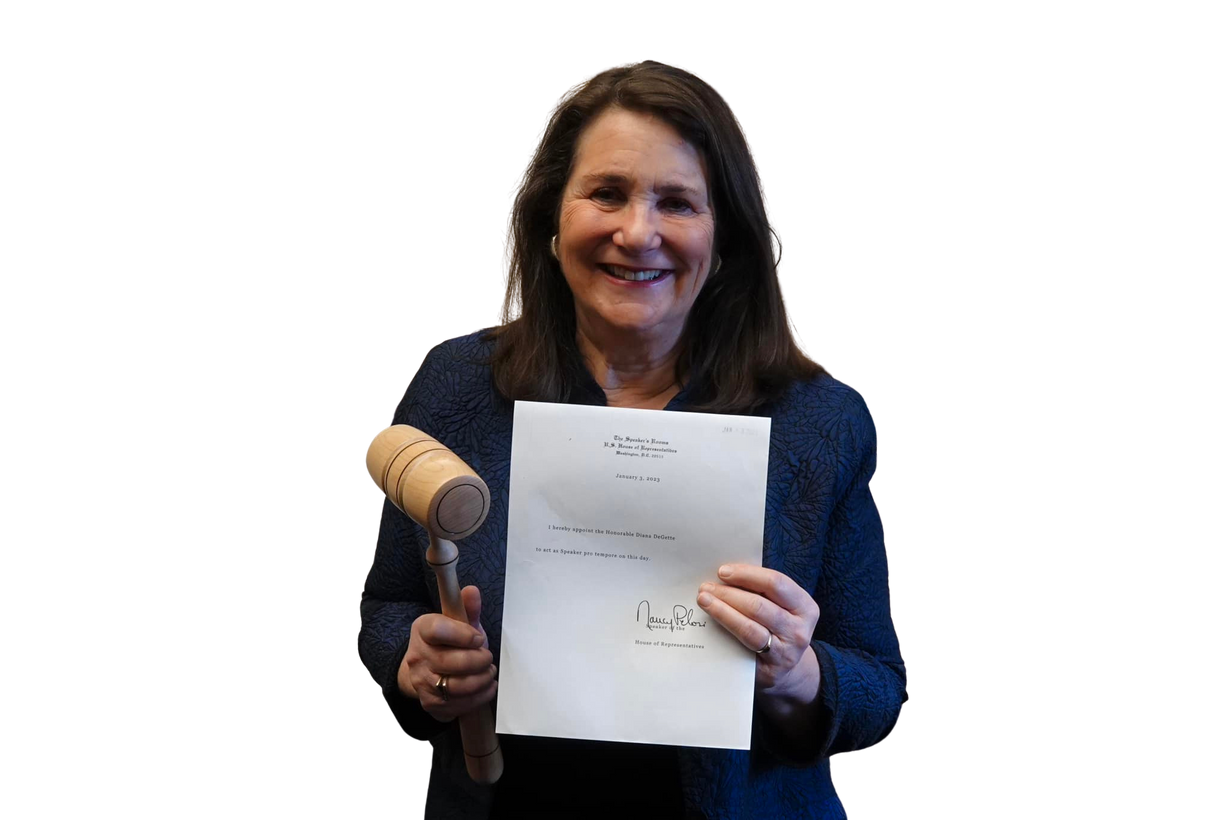
It was an honor to gavel out the 117th Congress in January.
February
February was a very busy month in Washington, and I was proud to lead the charge on several legislative efforts.
In February, I helped introduce legislation to reinstate a nationwide ban on the sale of semi-automatic assault weapons and high-capacity gun magazines. We have lived through too many heartbreaking tragedies over the years. It’s time for Congress to prioritize ending the epidemic of gun violence in America – and this bill, H.R. 1808, the Assault Weapons Ban, would help us do that. While no two mass shootings are ever the same, a common thread that continues to unite some of the deadliest events in this country is the use of these high-powered rifles with high-capacity magazines.
One of the most critical lessons we learned in responding to public health emergencies – such as SARS, Ebola, and COVID-19 – is time is of the essence. When a potential threat emerges, it is critical we immediately have all hands-on deck to contain it as soon as possible. Doing that requires providing the public with accurate and timely information to protect themselves and their families. Ensuring our public health agencies have the tools they need to communicate with the American people during a crisis effectively is critical. It’s also vital to ensure they can rapidly address disinformation that’s eroding the public’s trust in our public health agencies and causing people to take actions that are averse to their health and well-being. That’s why I introduced the Promoting Public Health Information Act to help U.S. public health agencies combat the rampant spread of misinformation during a public health emergency.
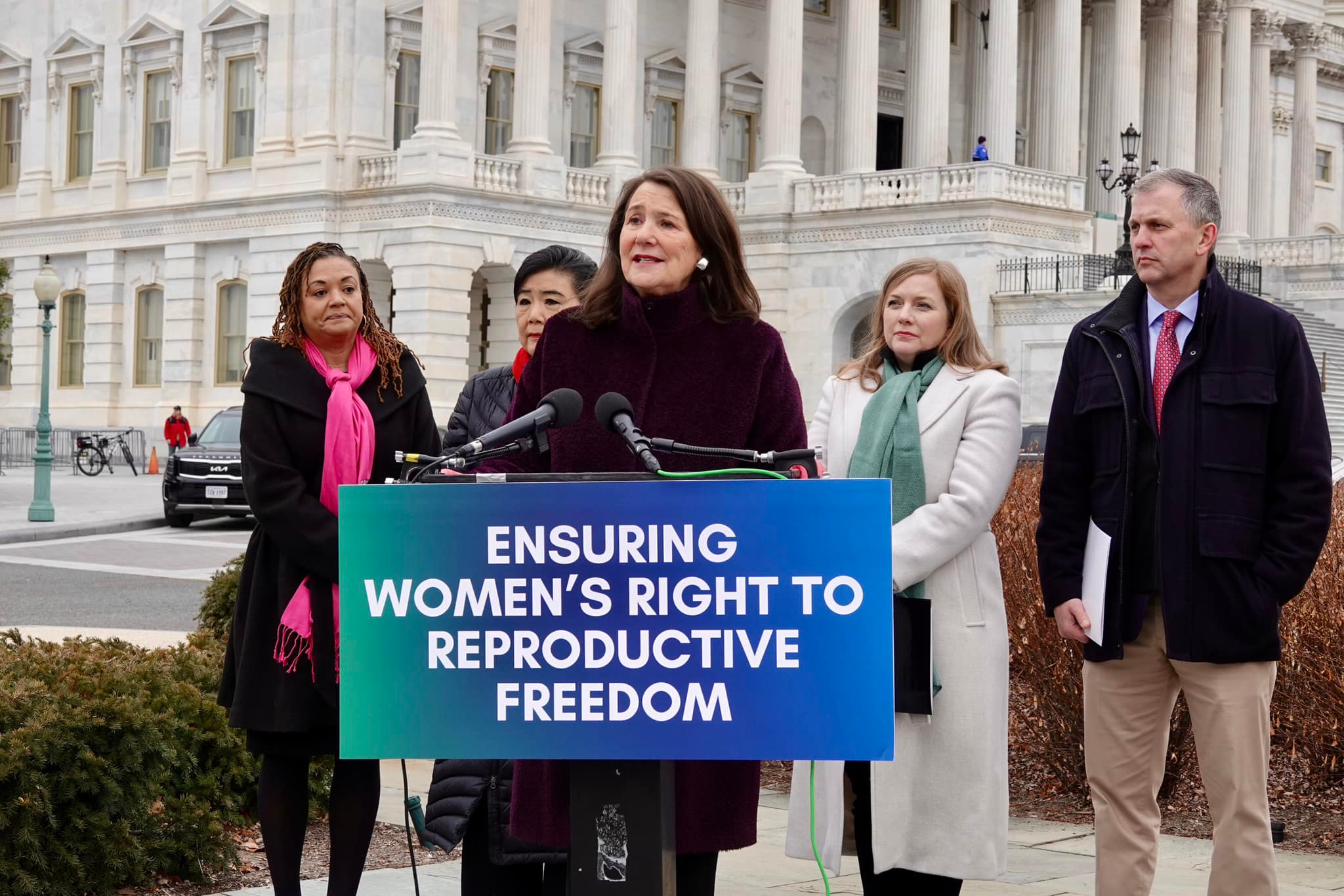
I also sponsored legislation to drastically expand a federal program, known as the Low-Income Housing Energy Assistance Program, or LIHEAP, which helps pay a portion of people’s utility bills if they are struggling to afford it. No one should have to worry their heat could suddenly be shut off because they can’t afford their bill. And no one should have to make the impossible choice of putting food on their table or keeping their heat on. The legislation I sponsored will make all individuals earning less than $46,000 a year eligible to have a portion of their utility bill paid for them. It will also make any household that’s spending more than 3% of their income on energy costs eligible for assistance.
Lastly, I met with Denver residents who told me how impactful
expanding LIHEAP would be. Their story highlights how critical
this legislation is and why the fight to have
it enacted is so critical.
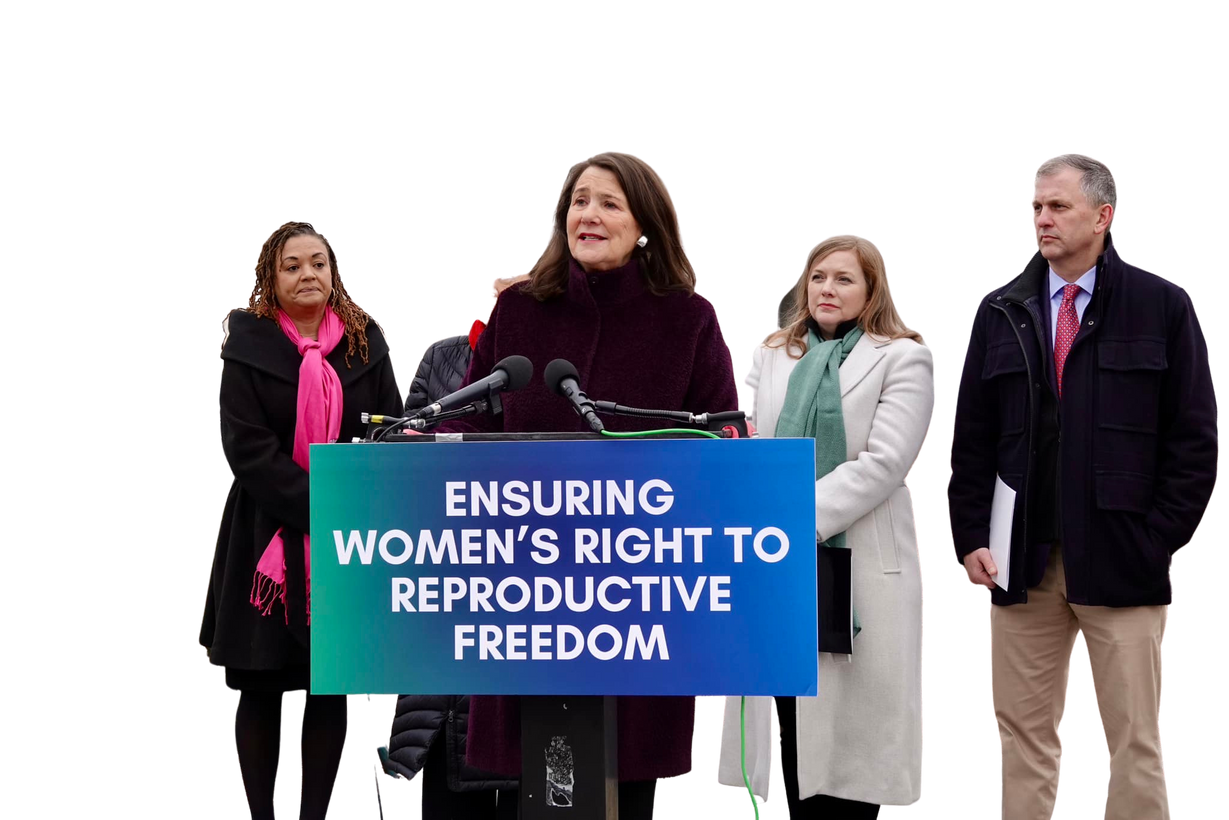
March
In March, the Energy and Commerce Committee I serve on held a hearing with Shou Chew, the CEO of TikTok, to provide the American people with specific details on what the company is doing to prevent the spread of harmful misinformation on its platform. I pressed Mr. Chew about numerous instances of dangerous health misinformation being pushed to TikTok users in America and the responsibility social media apps have to prevent this from happening on their platforms.
I introduced legislation to deliver environmental justice in 100 of the most heavily polluted communities across the country. While our nation’s environmental laws were put in place to protect everyone in this country equally, they have certainly not been enforced that way.
For too long, communities such as Globeville and Elyria-Swansea have suffered under a system that’s failed to protect them, and it's incumbent upon all of us to correct that injustice as soon as possible.
I was proud to host a roundtable with residents from Elyria-Swansea to hear their stories and discuss the need for environmental justice across Denver and throughout the nation. Protecting the health and well-being of all our communities must be a top priority.
We can’t allow environmental justice to become just a catchphrase people like to say. We must make it our collective mission to deliver it in every community across this country.
I also joined with several of my colleagues to introduce the Women’s Health Protection Act, legislation that would restore the protections in place under Roe v. Wade and, once again, give everyone in this country a federal right to abortion care. By codifying the protections that were in place under Roe, this legislation would nullify the state laws that have been enacted to limit or ban Americans’ access to abortion care. It would end the nightmare countless women across this country are now facing as they try to access the care they need, and it would prevent Republicans’ attempts to further restrict patients’ access to abortion care going forward.
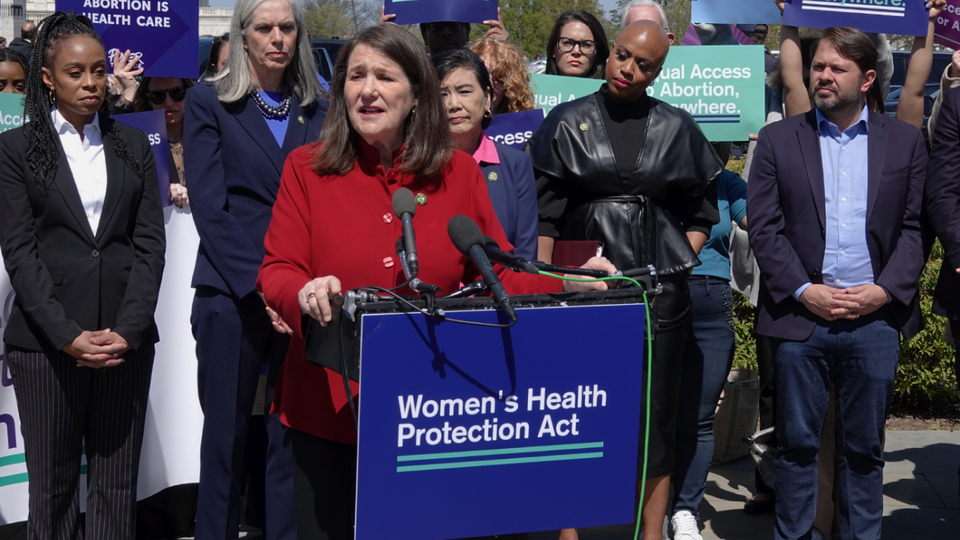
Sadly, in March, Denver lost one of our greatest public servants. Former Rep. Pat Schroeder was a pioneer for women’s rights. She was a trailblazer, a role model, a mentor, and a friend. She dedicated her life to serving her community, and to championing the well-being of women and families throughout this country. She became a mentor and dear friend after I succeeded her, and I am eternally thankful, not only for all the incredible work she did for our state and city but for the guidance and friendship she provided along the way.
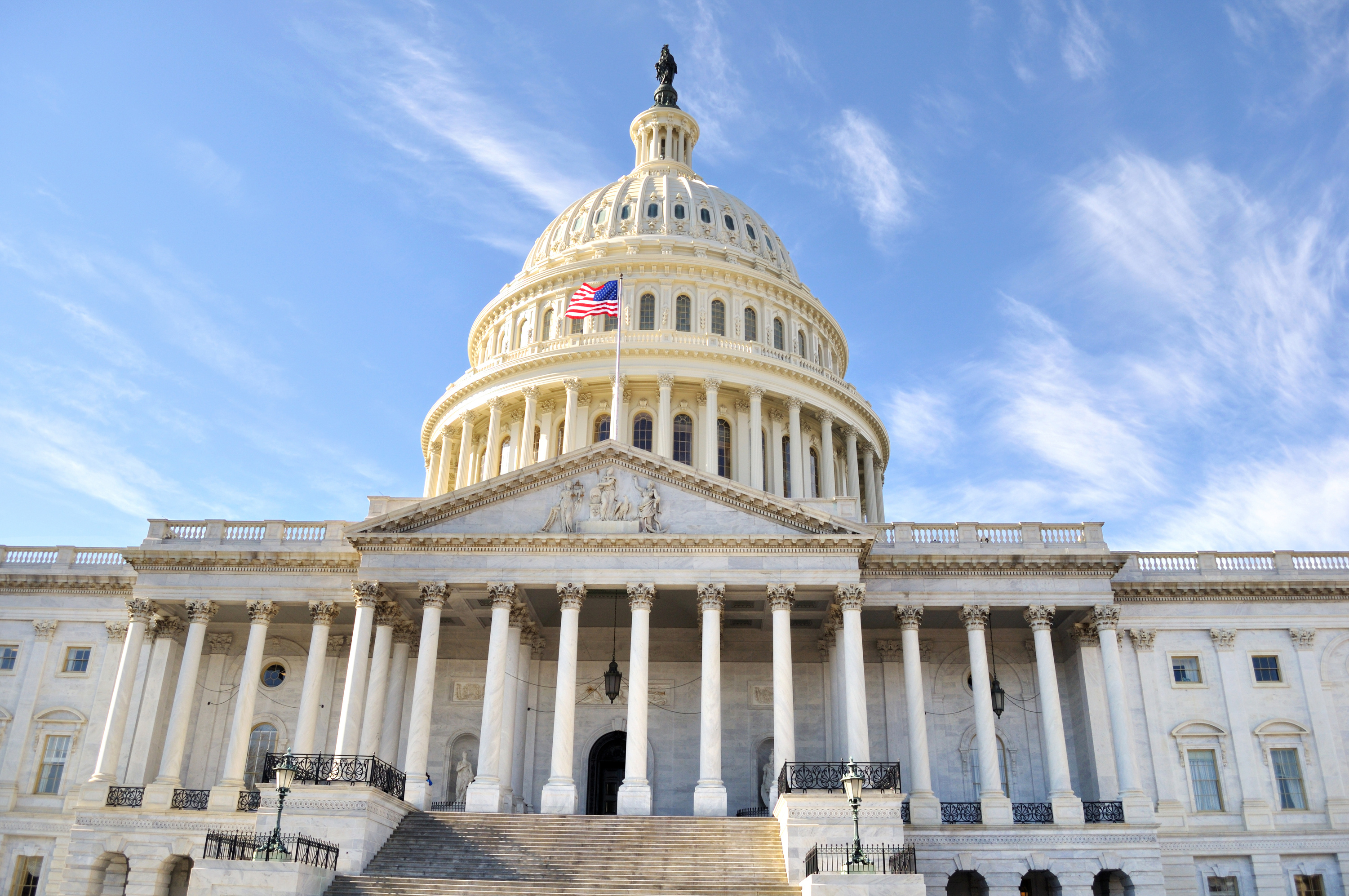
April
As co-Chair of the Congressional Diabetes Caucus, I will always fight for accessible treatment options and a cure for those living with diabetes. In April, I was proud to introduce the Special Diabetes Program Reauthorization Act of 2023, legislation to continue funding key diabetes research programs. As the mother of a daughter with Type-1 diabetes, I know the struggles so many Americans with this disease are going through daily. The research funded by the Special Diabetes Program has led to several significant discoveries that are already helping to improve the lives of millions of people living with diabetes across this country. And it’s critical we reauthorize this program so it can continue its work and move us closer to a cure.
Unfortunately, much of the rest of April was spent trying to prevent our country from defaulting on its debt, which would have been catastrophic for America’s economy. Millions of jobs would have been lost; interest rates on credit cards, mortgages, and car loans would have skyrocketed; millions of veterans wouldn’t have received their benefits – and our nation’s overall economy would have been plunged into a recession.









House Democrats were prepared to prevent a devastating default with a clean bill to raise the debt ceiling, as Congress has done numerous times before, while conservatives continued to hold us hostage unless we agreed to pass a bill that would enact devastating funding cuts.
Thankfully, in the end, President Biden was able to negotiate a deal to prevent a default in May. This deal averted an economically destabilizing default and passed with overwhelming bipartisan support in both the House and the Senate. Unfortunately, within days of striking this deal with the president, conservatives were already discussing abandoning the deal and going back on their word. We’ll return to that over the next few months.

May
It is impossible to understate the vital role the South Platte River plays in Denver’s overall ecosystem. And it’s why, for years, I have been working closely with Colorado’s congressional delegation to not only secure the funding needed to restore this vital waterway, but to expedite work on it so we can revitalize it as soon as possible. Thanks to our work, the city of Denver and the Army Corps of Engineers were able to sign a landmark new agreement in May that would speed up work on the South Platte River Project.

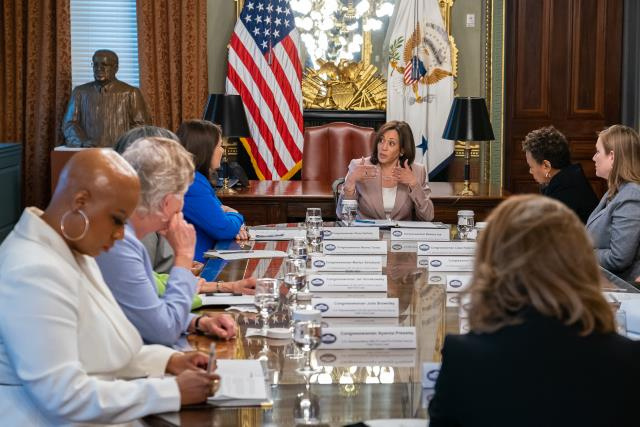
In May, I also had the honor of meeting with Vice President Kamala Harris to discuss ways Congress and the administration can work together to restore the protections we had under Roe v. Wade. Among the issues we discussed was what we can do to not only restore the rights we had, but to expand them.
While we may not have the majority in the U.S. House now, poll after poll shows a vast majority of the American people are on our side in this fight – and we are not going to give up until everyone in this country can, once again, access the care they need.

Lastly, to help care for the growing number of migrants arriving in Denver, Congresswoman Caraveo and I sent a letter directly to President Biden urging him to release additional federal funding to directly support cities, such as ours. And I will continue to work closely with my colleagues at the local, state, and federal levels to ensure all levels of government are working together to address this crisis for as long as it takes.
June
June was a very interesting month, to say the least, as President Trump became the first former president ever to be indicted on federal charges. In fact, he’s the first president to be impeached twice, indicted, and found liable for sexual assault. While this was a truly unprecedented moment for our country, by indicting President Trump and holding him accountable for his actions, America’s justice system, once again, showed its strength and reminded us no one is above the law in this country, not even former presidents.
On the one-year anniversary of the Supreme Court’s disastrous decision from the Dobbs v. Jackson Women's Health Organization case to strip away the federal right to abortion care, I introduced a discharge petition that could force the House to vote on a landmark piece of legislation that would restore the protections we had under Roe v. Wade nationwide. Under House rules, if a discharge petition to force a vote on a particular piece of legislation is signed by 218 members of the House, it must immediately be brought before the full House for a vote, regardless of any objections or attempts by GOP leadership to block the legislation from being considered.
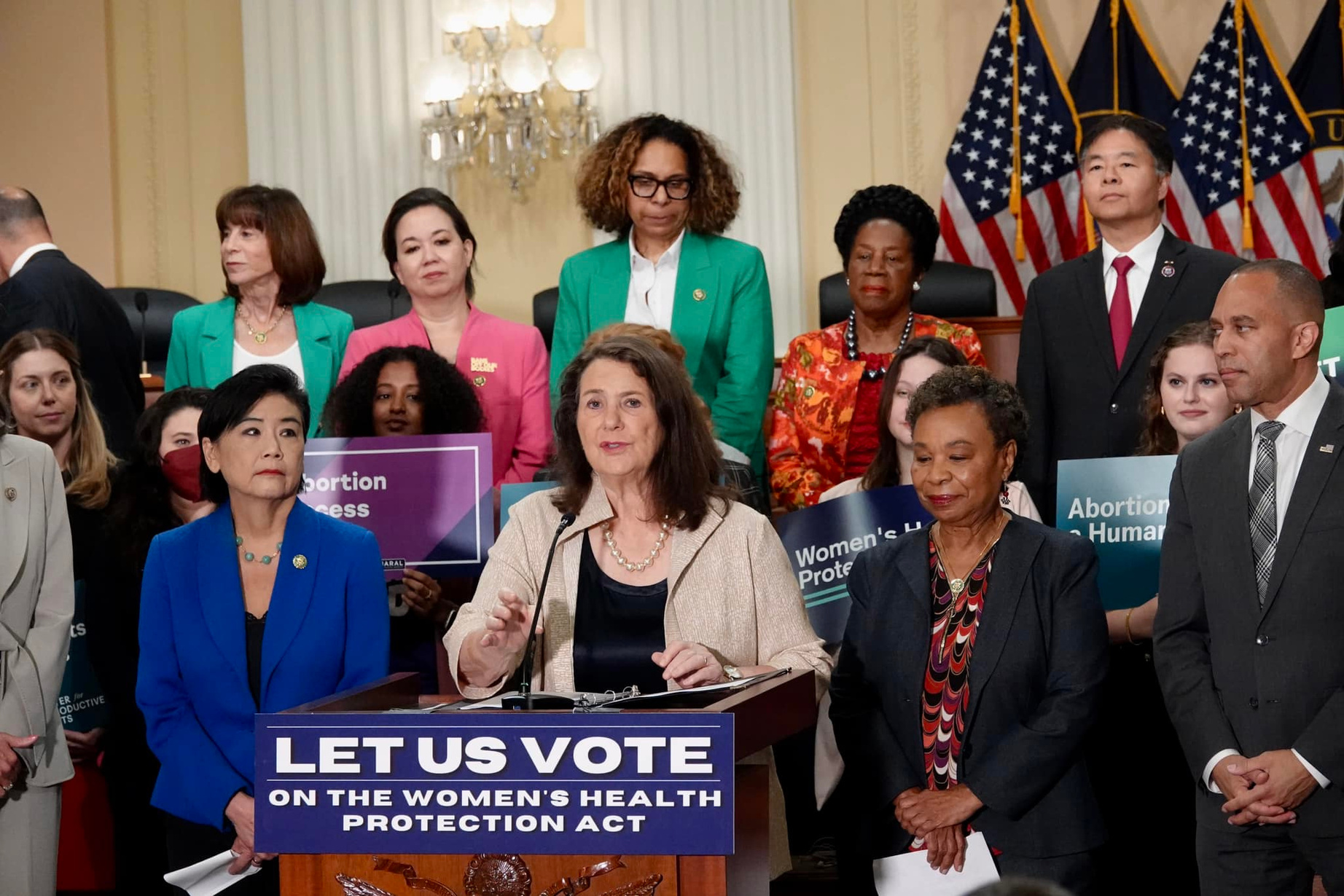
The move came as more than a dozen states across the country had up to this time enacted laws banning or extremely limiting women’s right to access abortion services in the wake of the Supreme Court’s decision last year.
While we only needed a handful of Republicans to join us
in passing this measure, none signed on in favor.
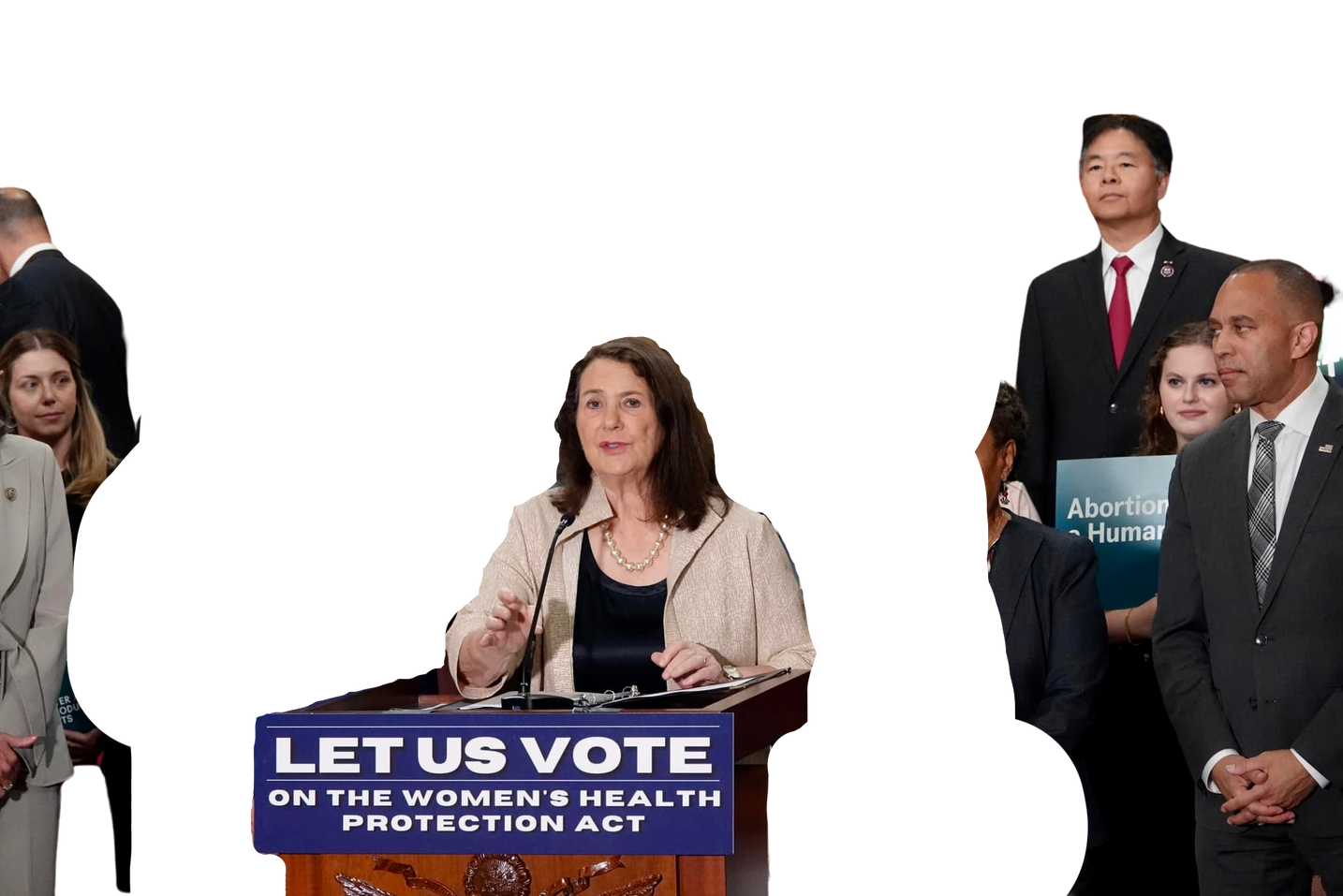
July
Every year, Congress passes the National Defense Authorization Act or NDAA. It’s traditionally been a bipartisan effort that brings members together to pass a bill that protects our national security and ensures we’re meeting the needs of our servicemembers around the world.
This year, however, conservatives caved to the extreme demands of their far-right Members and loaded this bill with poison pills. These policy riders attacked LGBTQ+ servicemembers, stripped diversity training, and prevented the military’s move to renewable energy sources while completely burying the bipartisan provisions in this bill.
If that wasn’t enough, this bill took another step towards the far-right’s ultimate goal of enacting a nationwide abortion ban, this time targeting servicemembers.
It’s shameful to force our troops who must travel out of state to get the care they need to pay for that care from their own pockets. I spoke out against the amendment for the over 2 million troops who are stationed in states where they lack abortion access.
In July, I was back in Washington introducing a slew of new bills to improve the lives of Denverites and Americans nationwide. This included legislation to regulate chemicals used in the fracking process.
July also marked 100 years since the Equal Rights Amendment was first introduced and on the eve of this centennial anniversary, I, and dozens of my colleagues, went to the House floor to sign a discharge petition that would force the House to vote on a key piece of legislation that will ratify the Equal Rights Amendment as the 28th Amendment to our Constitution – and finally give all Americans, regardless of sex, equal protection under the law.
Lastly, as the top Democrat on the House Energy and Climate subcommittee, cutting our nation’s methane emissions is one of my top priorities since it is the second largest greenhouse gas contributor to climate change and is 28 times more potent than carbon dioxide. And I was honored to speak at the White House’s first-ever Methane Summit, which brought together leading experts from across the country to address the urgent need to lower our methane emissions immediately.
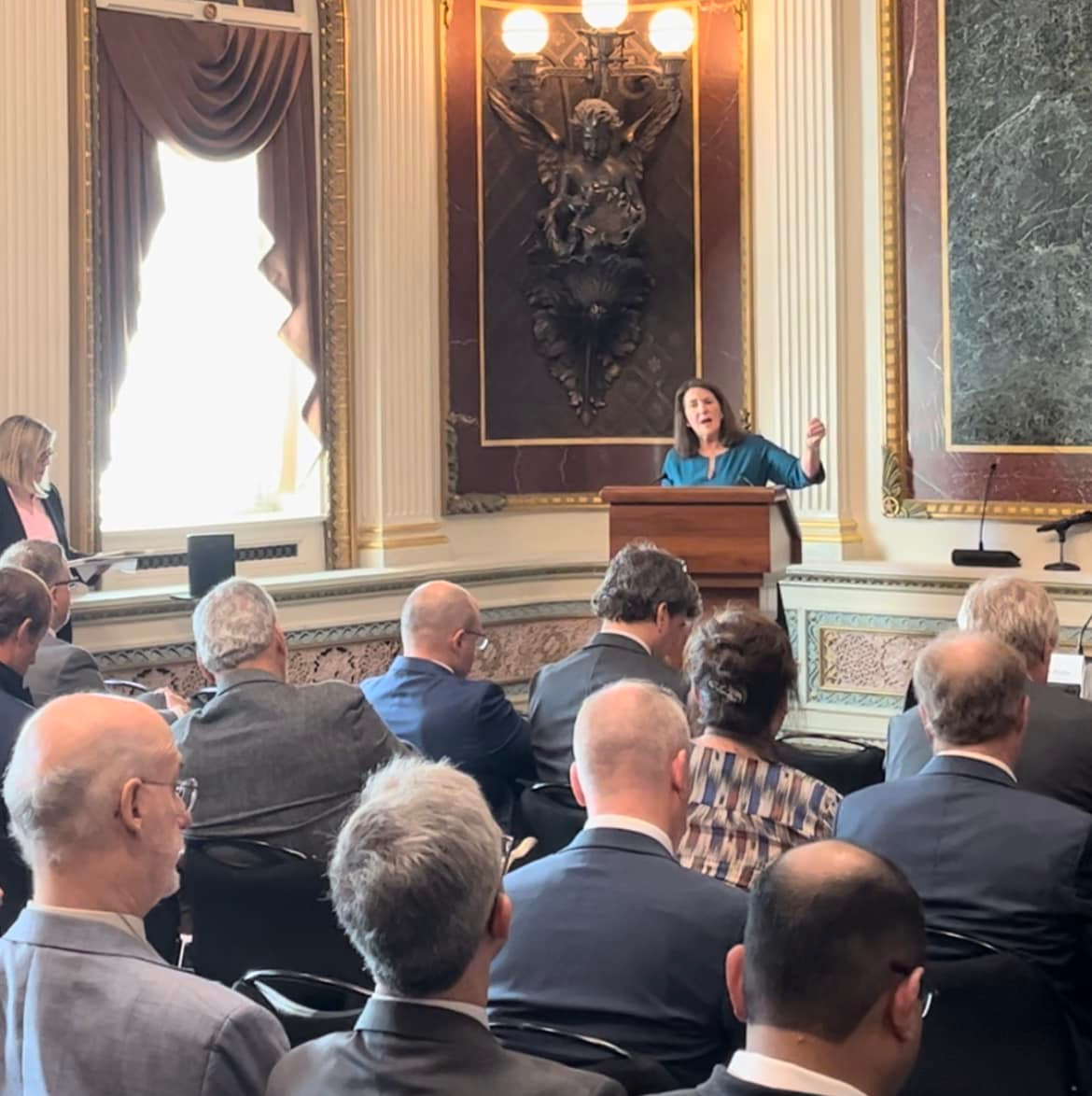
I told those gathered for this summit we must do more to build upon our progress. We need to expand the use of advanced technologies to detect and prevent leaks along the entire supply chain. We need to plug the thousands of orphaned oil and gas wells located around the country, and we need to eliminate the oil industry’s practice of routine flaring at drilling sites.

August
In August, I was back in Denver, meeting with constituents and stakeholders during Congress’ district work period.
I hosted a housing roundtable with some of the leading advocates from across our community who are working tirelessly to help those experiencing homelessness and met with DEN’s leadership team to discuss the renovation, expansion, and upgrades being made to the airport.
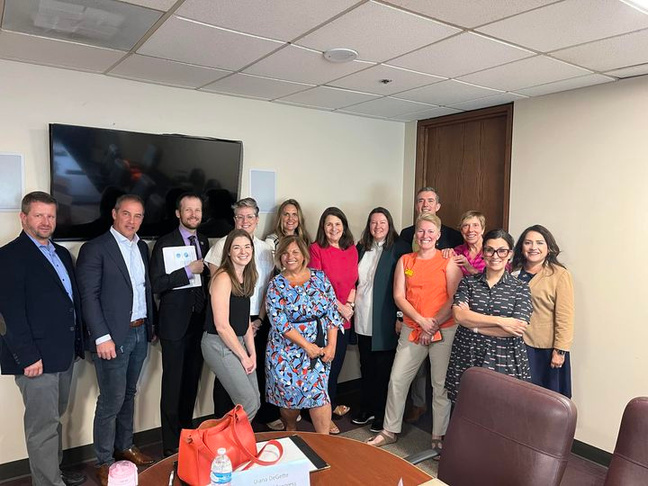

I was also able to see how projects from the Bipartisan Infrastructure Law were rolling out in our district, including the Alameda Bridge – the oldest highway bridge in Colorado. Thanks to the historic infrastructure funding Congress approved, work to rebuild, and improve this aging structure is well underway.
Lastly, the Medicare Drug Price Negotiation Program established by Democrats as part of the Inflation Reduction Act, was rolled out. It will save the government tens of billions of dollars in the coming years as it, for the first time, allows the federal government, one of the largest purchasers of medication, to negotiate for the best price.
I was proud to support this bill that passed last
Congress because it lowers the cost of these
important medications for millions, reduces
future health care costs for all Americans,
and saves the government $98 BILLION.

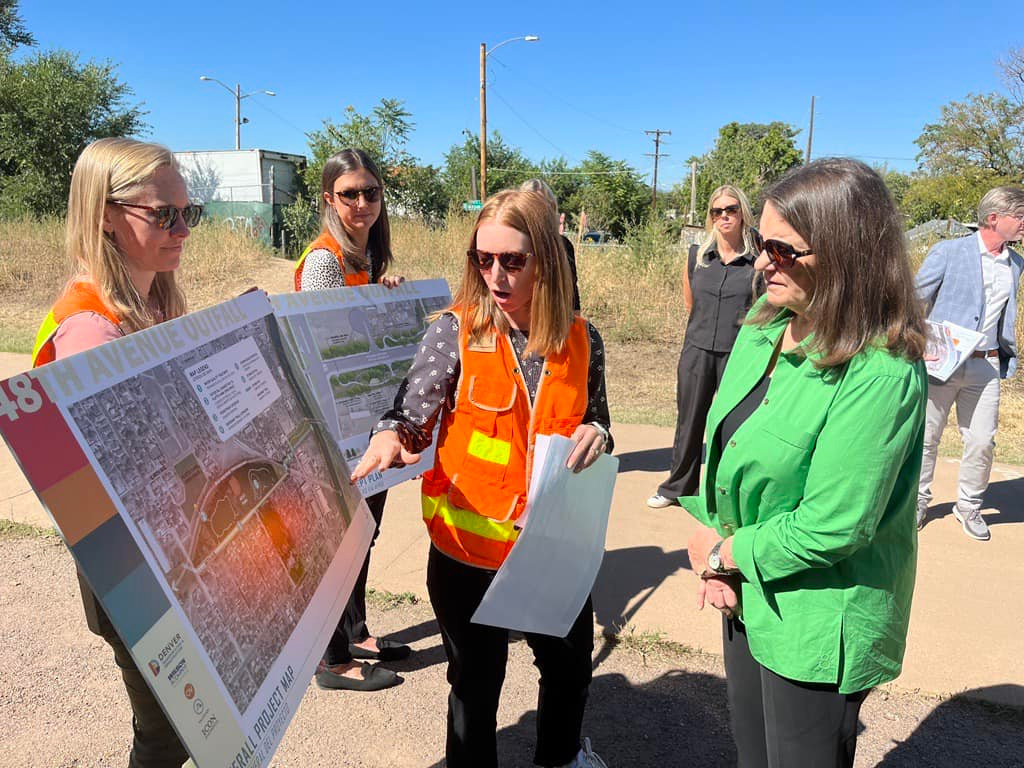
September
After 6 weeks of working in Denver connecting with Denverites and visiting small businesses, I headed back to Washington, D.C.
Congress was back with a mission this fall: avoid a government shutdown. Every year, Congress sets out to pass 12 appropriations bills to fund the government before the September 30 deadline. At this point in 2023, we had only passed one and had 11 more to go – with only weeks to do that work.
Yet, the first thing former Speaker McCarthy did after our return to Washington was announce the House was opening an impeachment inquiry into President Joe Biden. There was no concrete evidence of any wrongdoing by President Biden (and there still isn’t!). Even Congressional Republicans questioned the merits of this nakedly partisan investigation. It’s clear this move was a cheap and dangerous gambit to distract from the fact conservatives are flailing in their attempt to govern.

While we tried to avoid a shutdown and fend off a baseless impeachment inquiry, I continued my work to combat gun violence. I led 60+ Congressional Democrats in sending a letter asking President Biden to do more to address gun violence. The president has made reducing gun violence a major part of his agenda, and we’ve seen progress in some areas. But we can’t stop here. My letter outlined five concrete steps he can take to save lives and reduce gun violence. I hope he’ll take these actions, and I’ll continue to do everything I can to address the crisis of gun violence.
Throughout September, House Republicans announced multiple potential breakthroughs to avoid a government shutdown. Each time, these partisan bills were defeated by their members. It looked like a shutdown was guaranteed.
At the last minute, as in hours before a shutdown would commence, conservatives folded. They agreed to a clean continuing resolution that would prevent a shutdown until November 17. I’m glad this step was taken because a shutdown would have been disastrous. But it never should have come to the brink as it did.
October
Unfortunately, October in Washington was everchanging and uncertain due to infighting from the opposition.
Mere days after averting a government shutdown, the House was thrown back into chaos by a civil war that consumed the far-right and ousted former Speaker McCarthy. This was the first time in American history a Speaker of the House was removed by their own party. And, sadly, it’s the American people who were the real victims of the infighting.
For many, McCarthy’s ouster came as no surprise. Back in January, to be elected Speaker, Kevin McCarthy agreed to his far-right members’ demand for a single-member motion to vacate the chair or speakership. Many people on both sides of the aisle said this was a mistake, but McCarthy agreed to it and was finally elected as Speaker after 15 tumultuous rounds of voting.
That advice proved true in October when Rep. Matt Gaetz (R-FL) filed a motion to vacate. The next day, a vote on the floor was scheduled; and 8 Republicans joined all House Democrats in voting to remove McCarthy as Speaker.
Without a Speaker for several weeks, the House was unable to consider any legislation or respond in any way to events at home or abroad. We were stuck in limbo until House Republicans eventually put forth Mike Johnson as House Speaker.
Though Congress was finally able to get back to work, I still have serious concerns about Speaker Johnson’s ability to lead this Chamber because I believe his views are fundamentally out of step with the American people.
Meanwhile, throughout October, I closely followed events in Israel in the aftermath of the devastating attack when a terrorist organization known as Hamas led an all-out assault on Israel – targeting innocent civilians. Thousands were killed. And hundreds were taken hostage. Children, seniors, families, concertgoers. Our hearts go out to all those who lost loved ones and were affected by this attack.
In response, I joined almost 400 of my colleagues in sponsoring a House resolution supporting Israel and condemning this attack. This bipartisan step showed that the U.S. remains united with our ally and recognizes the right of Israel to defend itself– as any nation should in a crisis like this.
And while we worked at the federal level, we also came together as a local community. I was honored to join over 2,000 Coloradans as we gathered at Temple Emanuel in Denver to mourn the loss of life and stand in solidarity with Israel.
Two hundred thousand Americans were still in Israel with thousands trying to get out. I worked closely with my staff and the State Department to do everything we could to ensure that the Coloradans trapped in Israel could get out safely.
November
After Speaker Johnson assumed his new role, he soon found himself in the same shoes as former Speaker McCarthy.
Throughout November, he was forced to pull funding bill after funding bill off the floor after Republicans were unable to pass them on their own.
When it became clear the government would be shutting down on November 17, House Democrats once again came to the rescue to save the American people and keep the government open.
This continuing resolution (CR) funds federal agencies at current spending levels with two distinct expiration dates: January 19 for one set of government programs and February 2 for another. This split deadline is meant to provide us with additional time to complete individual annual spending bills – work that should have been completed by September 30 of 2023.
As the conflict in Israel continued, we saw a short-term peace agreement bring a temporary cessation of hostilities and hostage exchange. I had hopes that this may be a breakthrough. But the agreement lapsed, and fighting resumed.
December
In early December, I called for a new, mutual, and permanent end to the violence of this conflict. This agreement should immediately end the fighting, release all remaining hostages, and allow massive humanitarian aid that can swiftly and safely bring essential food, water, fuel, and medicine to all those impacted by the conflict.
In the long term, the U.S. and our allies in the region – together with Israeli and Palestinian leadership – must urgently work towards a peace accord, including a two-state solution, that upholds the equality and dignity of all citizens to ensure the violence we saw on October 7 never happens again.
December also gave me an opportunity to travel to COP – the annual United Nations Climate Change Conference.

At the conclusion of the conference, a landmark agreement was reached in which nearly 200 nations united to transition away from fossil fuels “in a just, orderly and equitable manner” while “accelerating action in this critical decade, so as to achieve net zero by 2050 in keeping with the science.”
As the top Democrat on the House
Energy & Climate subcommittee
and a long-time climate advocate,
I was proud to have attended this
conference knowing the work we’re
doing will create a more sustainable for
our children and grandchildren.


This year was incredibly successful in delivering for Denver.
Here’s some of what we
accomplished in 2023....
$10.7 million
Requested for Denver-area Projects
+ 9100
Calls answered from constituents
+ 1600
Federal issues resolved for constituents
+ 79,000
Constituent letters sent
